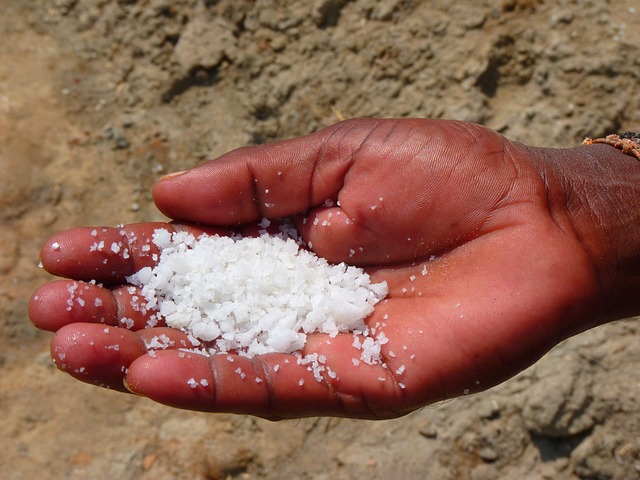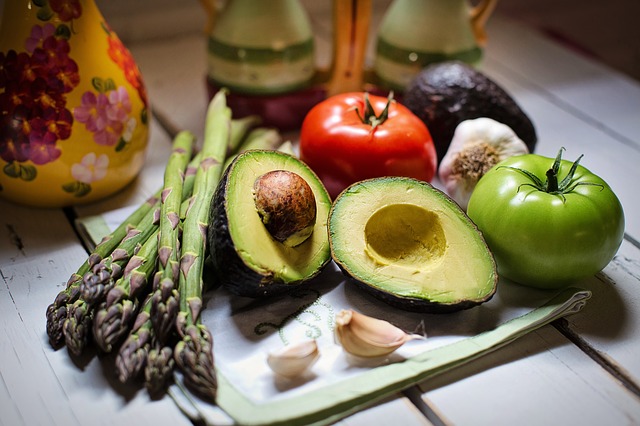 In the following, we’ll discuss specific strategies and tactics to manage water weight and achieve maximum definition.
In the following, we’ll discuss specific strategies and tactics to manage water weight and achieve maximum definition.
Excess fluid retention may be a symptom of liver or kidney damage. If you suffer from a severe case of water retention or edema, go see a doctor. If you want to take your physique to the next level, keep reading.
Manage Your Stress Levels
Don’t worry. I’m not going to lecture you on how bad stress is and how your busy schedule will “destroy your health” – No – Stress is an integral part of our existence.
It’s how you deal with your daily stressors that will ultimately determine their impact on your life. There are, however, a few fundamentals you need to grasp before we move on.
Under stress, your body secretes glucocorticoids like adrenaline and cortisol (the “fight-or-flight” response), and these hormones alter the fluid balance in your body. Elevated cortisol has shown to cause water retention and puffiness in prone individuals.
The goal is not to avoid stress, however, but to maximize your resistance to stress. And it all starts in your bedroom…
Sleep more, sleep better.
A disrupted sleep cycle will keep your stress hormones perpetually high. Apart from impeding physical recovery and crippling mental performance, sleep deprivation will also make you hold on to more water, giving your body a soft, gooey look. Combine that with the standard western diet and you’ll find yourself caught in a downward spiral that very few ever get out of.

Aim for 7-8 hours of uninterrupted sleep every night. Sleep more. Sleep better. There’s really not much more to be said about it. If you still think you can get away with less, don’t complain to me about your inability to lose weight.
Get to the gym.
Another way to lower stress and manage water retention is physical activity. While exercise helps keep you lean and mean, excessive gym bouts may actually worsen your condition. Overtraining, especially if combined with a low-calorie diet, may exacerbate water retention.
If you want to look your best, do some form of resistance training 3-4 days per week.
Trigger fat-loss with your diet (“you can’t outtrain a bad diet”) and use training to hold on to, and even build muscle during caloric restriction. Do not use exercise to “burn calories”, or “burn fat”. This strategy always fails, as evidenced by skinny-fat marathoners and the chronic over-exercisers at your gym (ever wondered why so many fitness instructors are out-of-shape?).
Go hard and go fast to optimize your body’s response to exercise. And when you get home from the gym, fuel up properly to support recovery and adaptation.
Slay The Cookie Monster
The mirror doesn’t lie. Your “clean” diet isn’t working.
The elevated insulin levels seen with your high carbohydrate diet stimulate the kidneys to retain water, leaving you puffy and bloated despite eating so-called healthy foods (you know, the whole grains, pasta, oatmeal etc.).
Managing your carbohydrate intake while maximizing carb tolerance (insulin sensitivity) is critical to getting and keeping a jaw-dropping physique year round.
Monitor how your body responds to the different fuel foods (carbs vs. fats) and adjust your routine accordingly. If you’re prone to storing excess water, lower your carb intake and see if that improves your condition (it will).
Reducing carb consumption while emphasizing unrefined, whole food carbs is a good idea. Cutting carbohydrates out of your diet (i.e. Atkins, keto diets), however, is not as this will ultimately cause more water retention in the body by keeping cortisol levels perpetually high.
Here’s what you’ll do: Cut back on carbs for the majority of your meals while enjoying more carbohydrates around your workouts and on select days (i.e. the weekend, as in Dr. Mauro Di Pasquale’s “Anabolic Diet”).
In order to make this work, however, you need to raise your protein and dietary fats on lower carb days. This strategy will amplify the metabolism of fats and carbs without depriving you of the pleasures of life.
Salty Business: Should You Cut Sodium From Your Diet?

Sodium might be one of the most maligned, yet most important nutrients in the human diet.
When talking about excess water weight and bloating, sodium is always part of the discussion. In addition to regulating blood volume, blood pressure and supporting muscle contraction and nerve function, sodium is critical to proper fluid balance.
Sodium, however, is not the only mineral you need to keep an eye on. Calcium, magnesium, potassium and sodium are all critical to fluid balance and proper hydration status.
So does eating salt cause water retention? And why do you always balloon-up after eating Chinese food or slamming a pepperoni pizza?
These foods are very high in sodium and carbohydrates (and calories), both of which will leave you bloated, watery and comatose post-meal, if consumed in excess.
To avoid the dreaded sodium bloat, base your diet on nutrient-dense whole foods (start preparing your own meals) and minimize the consumption of processed foods (microwave meals, fast food, snacks, etc.).
Unless you suffer from a medical condition, however, I’d strongly advise against restricting salt intake, especially if you’re physically active. Recent data has disproven the link between sodium and heart disease and actually shown that dietary salt restriction may adversely impact health (and increase heart disease risk!).
The salt debate is a prime example of missing the forest for the trees.
Using a dash of salt on your scrambled eggs is not the issue here. We’re simply not consuming enough micronutrient-rich food in our diets to maintain proper fluid balance. Potassium is critical for balancing sodium in the body. But potassium deficiency is one of the most widespread nutritional deficiencies today.
Our favorite potassium source, bananas, only provide about 400 mg of potassium per serving. That’s less than 10% of your daily requirement. Leafy green vegetables (i.e. spinach), potatoes, beans and avocados (1000 mg per avocado!) are better options.
Magnesium, found in green vegetables, nuts, seeds and dark chocolate, also has a proven track record in alleviating water retention. You see a trend here? The stuff your body needs is found in the foods you don’t eat (enough of).
Supplements for water retention

Apart from adopting better dietary habits, there are a few supplemental aids to reduce water retention and alleviate bloating.
Dandelion and stinging nettle have been used as natural diuretics for millennia. Vegetables like asparagus, celery, and eggplant also have mild diuretic properties (another reason to eat more nutrient-dense food).
Herbs such as parsley and cilantro are also highly recommended as they support the body’s detoxification process.
Incorporate more herbs and veggies into your diet. You can find high-quality dandelion and nettle teas at your local health food store or online. I do not recommend synthetic supplements.
These remedies should only be used in conjunction with a comprehensive nutrition and exercise protocol. Don’t expect them to do the work for you.
Maybe you’re just… fat?
Be honest. Is it really water weight you struggle with or are you just carrying too much bodyfat?
If you’ve tried every remedy under the sun with little to no benefit, you might need to hop on the deficit train to see any noteworthy improvements in your physique. Losing excess bodyfat will get rid of your puffiness faster than any pill, potion or program. Nobody wants to admit that they’re just fat, but who are we trying to fool here?

Dial in your nutrition and spend less time stressing over the details (i.e. food intolerances, vitamin deficiencies, etc.). After dropping a few pounds and seeing your skin tighten up and your clothes fit better, you’ll forget you ever suffered from water retention.
But what if you’re already very lean and still suffer from stubborn water weight?
The “whoosh effect”
In one of the most widely documented weight-loss studies, the Minnesota Starvation Experiment, 36 male subjects were put on a 1500 calorie/day diet for 6 months.
The subjects initially lost weight in a linear fashion, dropping around 2 pounds per week. Over time, however, weight-loss would become much less predictable and much more volatile. The subjects would frequently stop losing weight for days and weeks even, only to experience large drops in bodyweight seemingly overnight.
Halfway through the experiment, the men were given a 2300 calorie meal to celebrate. In response to the high-calorie feeding, the subjects actually lost more weight. They ate substantially more calories only to wake up lighter and tighter the next day.
Doesn’t make any sense? Actually, it does.
The hormonal shifts seen with chronic calorie restriction will prompt your body to lower your metabolic rate and hold on to more water. Weight-loss is stressful on the body and will lead to increases in the aforementioned glucocorticoids (necessary for fat-loss). And, as you know by now, chronically high stress levels will promote water retention, blurring your progress and making weight-loss a test of sheer willpower.
In order to avoid these dieting pitfalls, you want to stick to a moderate calorie deficit throughout and take regular dieting “breaks”. Snapping out of the negative energy balance intermittently will reset your metabolism, effectively de-stressing your body and restoring proper hormone balance.
If you’ve been dieting rigorously for months, you need to introduce regular high-calorie days. Don’t be surprised if you drop a few pounds overnight despite eating substantially more food.
The leaner you get, the more often you’ll have to overfeed. You cannot chronically undereat without adverse effects. You cannot force weight-loss. Your body will make you pay for it, so play it smart and adopt a long-term strategy.
To recap, here’s how you drop the water for good:
- Get 7-8 hours of uninterrupted sleep every night
- Eat more micronutrient-rich foods
- Limit your carbohydrate intake
- When dieting, eat more calories intermittently
- Experiment with diuretic foods and herbs
Thank you for reading
Victor
Resources
Jürgens, G., Graudal, N.A. (2003). Effects of low sodium diet versus high sodium diet on blood pressure, renin, aldosterone, catecholamines, cholesterols, and triglyceride. Cochrane Database Syst Rev. 2003;(1):CD004022.
Ebrahimi, E., Khayati Motlagh, S., Nemati, S., & Tavakoli, Z. (2012). Effects of Magnesium and Vitamin B6 on the Severity of Premenstrual Syndrome Symptoms. Journal of Caring Sciences, 1(4), 183–189.
Omisade, A., Buxton, O.M., Rusak, B. (2010). Impact of acute sleep restriction on cortisol and leptin levels in young women. Physiol Behav. 2010 Apr 19;99(5):651-6.
Walker, A.F., De Souza, M.C., Vickers, M.F., Abeyasekera, S., Collins, M.L., Trinca, L.A. (1998). Magnesium supplementation alleviates premenstrual symptoms of fluid retention. J Womens Health. 1998 Nov;7(9):1157-65.
[…] dropped water weight, my muscles remain fuller, I recover faster between sessions and I’m less hungry. Getting […]